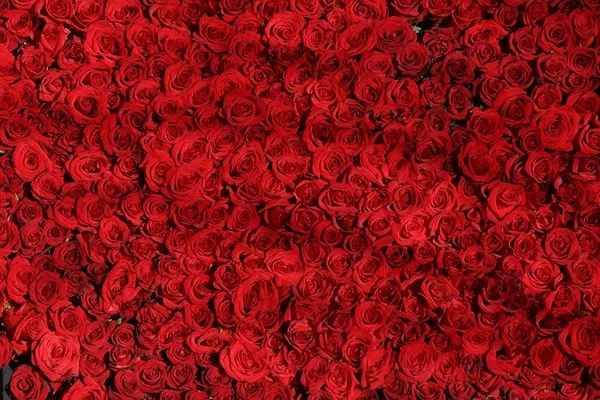Weddings are joyous occasions filled with love, celebration, and beautiful floral arrangements. From enchanting bouquets to elegant centerpieces, flowers play a significant role in enhancing the ambiance and adding a touch of nature’s beauty to the special day. However, after the wedding festivities are over, what happens to these gorgeous blooms? In this comprehensive guide, we will explore the sustainable practices and meaningful ways to repurpose wedding flowers, ensuring that their beauty continues to bring joy even after the ceremony. Let’s embark on this journey of post-wedding flower transformation, merging sustainability with sentimentality.
Embracing Sustainability in Floral Arrangements
Sustainability is at the forefront of modern-day wedding planning, and floral arrangements are no exception. Couples are increasingly seeking eco-friendly options to minimize the environmental impact of their weddings. By choosing locally sourced, seasonal flowers and working with florists who practice sustainable farming, couples can reduce their carbon footprint and support local communities.
Furthermore, opting for reusable materials, such as glass vases and wooden crates, over single-use plastic containers can contribute to a greener wedding experience. Sustainable floral practices not only benefit the environment but also add depth and meaning to the couple’s special day, reflecting their commitment to a more eco-conscious lifestyle.
Post-Wedding Floral Preservation
Preserving wedding flowers is an artful way to extend their beauty beyond the celebration. Various preservation techniques can be employed to retain the blooms’ vibrancy and form. Couples have the option of air-drying flowers, pressing them between the pages of a book, or using silica gel to remove moisture and maintain their original shape.
Once preserved, these sentimental keepsakes can be framed as wall art, incorporated into a shadow box with other wedding memorabilia, or transformed into resin-encased decor pieces. Preserved wedding flowers serve as cherished mementos, reminding couples of their special day and the love shared during the ceremony.
Donating Flowers to Local Charities and Hospitals
Another meaningful way to repurpose wedding flowers is through donation. After the festivities, couples can arrange for their floral arrangements to be collected and delivered to local charities, hospices, and hospitals. The joy and comfort that a bouquet of fresh flowers can bring to patients, the elderly, or those in need are immeasurable.
Collaborating with local florists, wedding planners, or organizations that specialize in flower recycling can ensure that these donated arrangements reach the intended recipients promptly and beautifully. The act of giving back in this manner not only brings happiness to others but also adds a sense of purpose and fulfillment to the couple’s wedding experience.
Composting for Eco-Friendly Garden Fertilizer
Nature has its way of recycling, and wedding flowers can find new life as eco-friendly garden fertilizer through composting. By separating the organic materials from the floral arrangements, couples can create nutrient-rich compost that will enrich the soil in their gardens or be donated to local community gardens.
Composting not only reduces the amount of waste going to landfills but also nurtures a sustainable cycle of growth and renewal. This earth-friendly approach aligns with the principles of environmental responsibility and regenerates the beauty of wedding flowers in the form of lush gardens and flourishing greenery.
Hosting Post-Wedding Flower Arrangement Workshops
A creative and enjoyable way to repurpose wedding flowers is by hosting post-wedding flower arrangement workshops. Couples can invite family, friends, or even wedding guests to join in crafting new arrangements using the remaining blooms.
During these workshops, participants can learn about the art of floral design, get hands-on experience with arranging flowers, and take home their creations as unique souvenirs from the wedding. Such workshops foster a sense of community and shared memories, turning the flowers that once adorned the ceremony into symbols of unity and love for all involved.
Environmental Consciousness in Flower Disposal
In some cases, couples may choose to dispose of wedding flowers in a more traditional manner. However, even in such instances, there are environmentally conscious ways to handle floral waste. Couples can opt for biodegradable options when discarding flowers, such as using natural jute bags or compostable containers for disposal.
Additionally, reaching out to waste management companies that practice responsible waste disposal, including composting or recycling, can ensure that the floral remnants are handled in an eco-friendly manner. By making informed choices, couples can still express their commitment to sustainability throughout the entire wedding journey.
Conclusion:
Beyond the wedding ceremony lies a world of possibilities for repurposing and preserving the beauty of flowers. Embracing sustainability in floral arrangements, preserving wedding flowers as keepsakes, donating them to local charities, composting for garden fertilizer, hosting arrangement workshops, and adopting environmentally conscious disposal practices are all meaningful ways to extend the life and impact of wedding blooms.
As couples embark on their journey towards matrimony, they can embrace a conscious and mindful approach to floral design that reflects their commitment to the environment and the communities around them. By infusing their special day with sustainable practices, couples can create a legacy of beauty, love, and environmental stewardship that extends far beyond the wedding day. So, let us celebrate love and the natural world, hand in hand, one post-wedding flower at a time.


